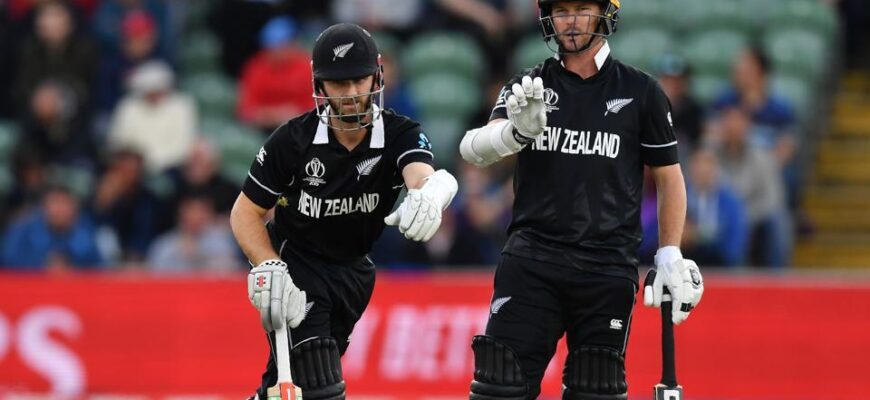The ICC Women`s World Cup, a theatre of dreams and, occasionally, stark realities, presents an intriguing narrative early in its schedule. Two formidable teams, the White Ferns of New Zealand and the Proteas of South Africa, find themselves at a critical juncture. Both arrive at their next encounter in Indore, India, not with the swagger of victors, but with the quiet introspection of sides licking wounds from comprehensive defeats in their opening fixtures. This isn`t just another match; it`s an immediate test of character, strategy, and sheer will.
The White Ferns` Conundrum: A Glimmer of Hope, Then a Great Fall
New Zealand`s journey began with a Trans-Tasman rivalry against defending champions Australia. A contest that promised fireworks ultimately delivered a sobering lesson. While captain Sophie Devine valiantly spearheaded their chase with a magnificent, run-a-ball 112, the scoreboard tells a tale of collective struggle. The White Ferns succumbed, losing their last five wickets for a mere 19 runs – a dramatic implosion that overshadowed Devine`s individual brilliance. More concerning, however, was their bowling performance.
Having reduced the formidable Australians to a precarious 128 for 5 within 22 overs, New Zealand allowed Ashleigh Gardner and company to resurrect the innings, ultimately conceding an imposing 326. It was a bowling display that began with promise but ended in perplexity, leaving many to wonder if their early aggression was merely a prelude to a late-game surrender.
The task for skipper Devine is clear: rally the troops, demand consistency, and ensure individual heroics are amplified by collective synergy. The question lingers: can they avoid a repeat performance of their “dramatic flair for self-sabotage” when under pressure?
South Africa`s Batting Blues: A Mountain to Climb
Across the pitch, the South African Proteas face a challenge perhaps even more fundamental. Their opening match against England was, to put it mildly, a cricketing calamity. Bowled out for a paltry 69, with only one batter managing to reach double digits, it was a performance that underscored a concerning pattern. This wasn`t an isolated incident; their previous game before the World Cup saw them struggle to 115 against minnows Pakistan. The statistics paint a stark picture: a batting lineup brimming with talent on paper—Laura Wolvaardt, Tazmin Brits, Sune Luus, and Marizanne Kapp among them—has consistently failed to translate potential into runs.
For the Proteas to compete, these seasoned campaigners aren`t just expected to contribute; they need to anchor the innings, injecting both stability and aggression. The question isn`t just if they can score, but how they can rediscover the confidence that seems to have evaporated when it matters most. Perhaps the “lofty ambition” of consistently reaching double digits for more than one player isn`t too much to ask.
The Tactical Chessboard: Indore`s Influence and Key Match-ups
As these two sides prepare to clash, the tactical battle will be as compelling as the on-field action. New Zealand, arguably, holds a slight edge on paper, particularly in their slower bowling options. Amelia Kerr`s leg-spin is anticipated to be a decisive factor, her ten overs potentially dictating the flow of the middle overs. Moreover, the White Ferns have the advantage of playing their second successive game at the Indore venue. This familiarity with the pitch conditions could prove crucial, allowing them to adapt more swiftly than their opponents.
South Africa, traveling from Guwahati, will be hoping the Indore pitch is a “good deck” – one where the ball comes onto the bat easily, allowing their struggling batters a chance to find rhythm and confidence. It`s a classic cricketing dilemma: will familiarity breed confidence for New Zealand, or will a fresh surface offer South Africa the clean slate they so desperately need? Will Indore be a neutral arbiter, or will it subtly tip the scales?
The Stakes: More Than Just Points
For both New Zealand and South Africa, this match transcends the mere accumulation of competition points. It`s about regaining momentum, restoring pride, and, crucially, keeping their World Cup aspirations firmly alive. Another heavy defeat for either side would not only complicate their path to the knockout stages but also inflict a significant psychological blow so early in the tournament. This fixture is a crucible, demanding resilience, strategic acumen, and a collective belief in their ability to turn the tide.
The stage is set for a gripping encounter, a narrative of redemption for one, or perhaps, both. Or, in a sport famous for its glorious uncertainties, a further twist in the tale where the “underperformers” suddenly find their stride. Only time, and a well-struck boundary, will tell.









